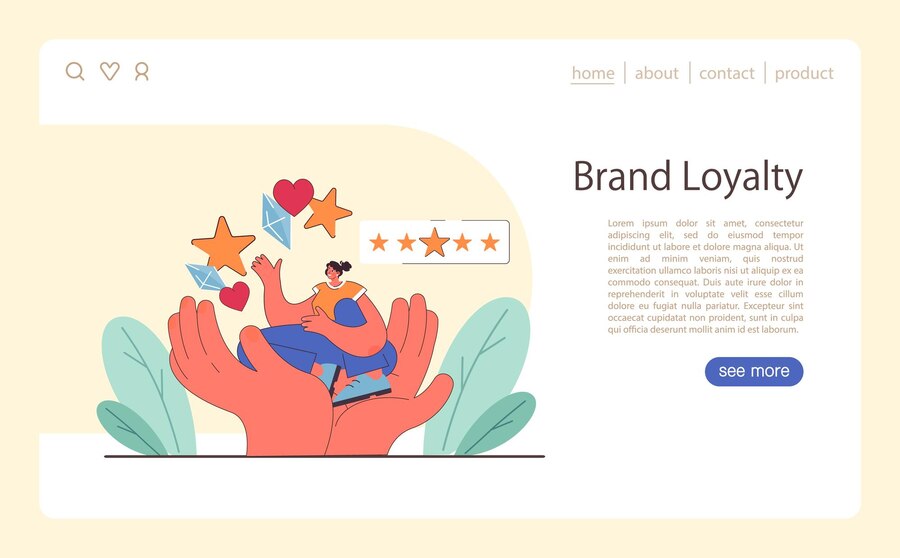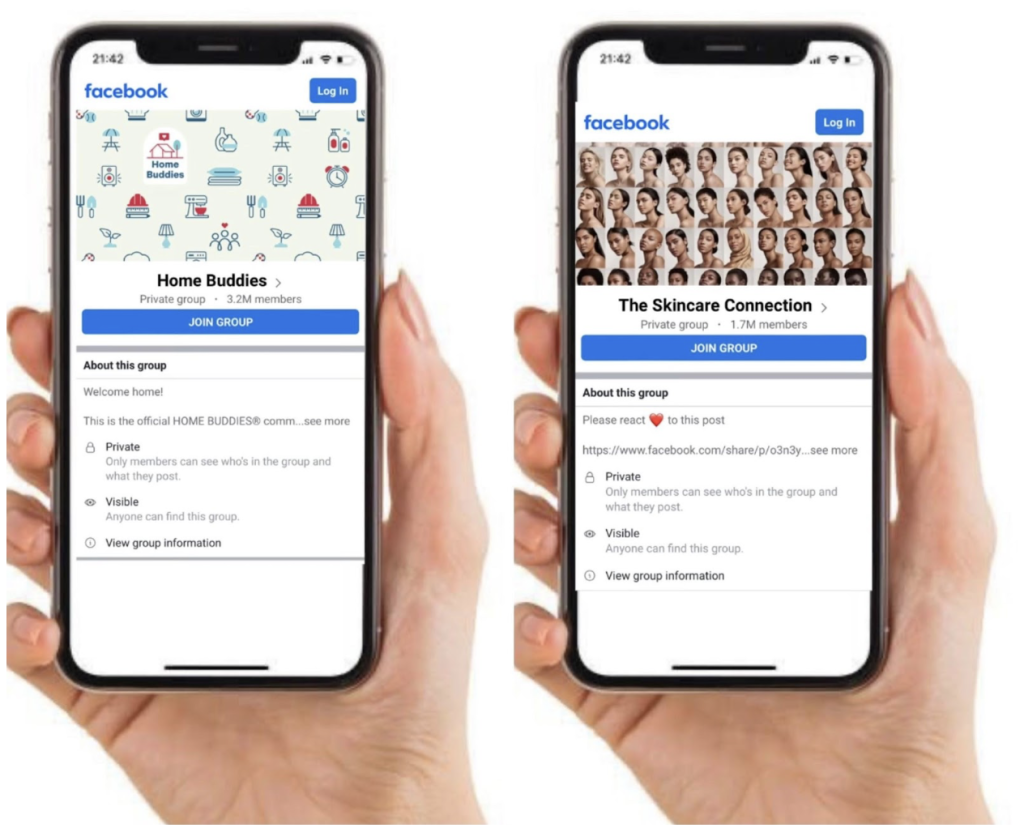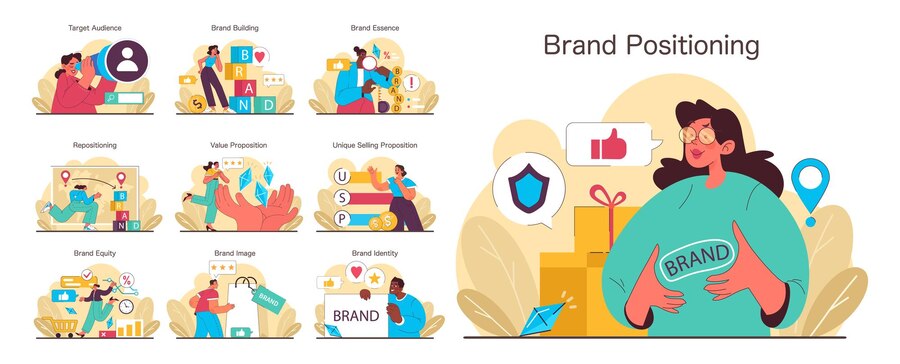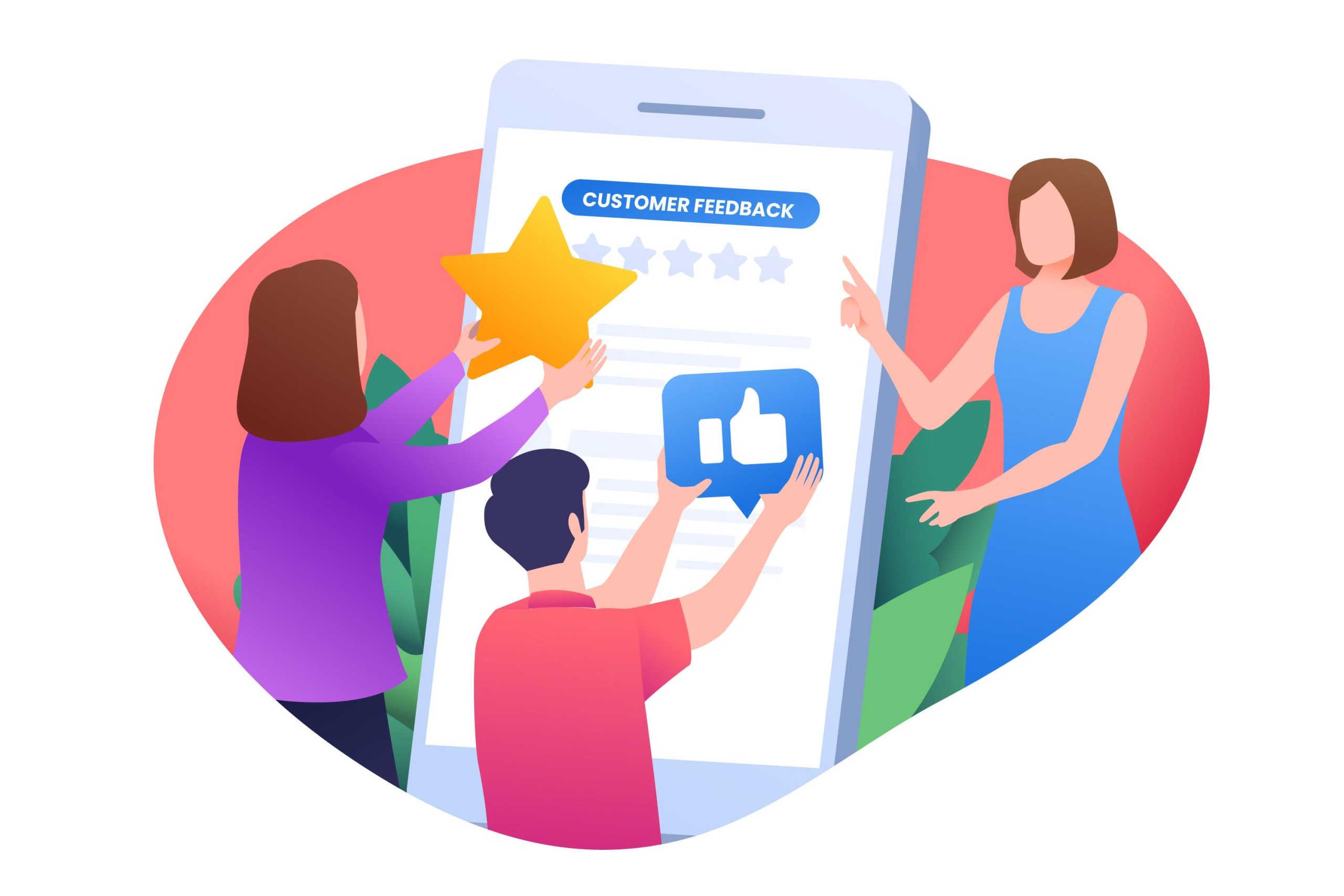Imagine you’re craving your favourite Dr. Ravey herbal tea. Unfortunately, it’s out of stock when you go to the store. But you notice Dr. Ravey Cinnamon Tea on the shelf. You decide to buy it since it’s still from the brand you love. That’s brand loyalty—your affection for the brand prompts you to try a different product.
Now, let’s say you walked away empty-handed. You refused to buy Dr. Ravey Cinnamon Tea because it’s not what you wanted—that’s customer loyalty. Customer loyalty is about your feelings towards a product. Brand loyalty is about your connection with the brand.
So, how do you foster brand loyalty among your audience? One effective way is by creating exclusive social media groups. In this article, we’ll explore how these communities can boost your brand’s engagement and increase loyalty.
Why private social media groups matter
Did you know that many successful brands use private groups on social networks to connect with their customers?
If you don’t, now you do!
Take Dr. Ravey, for example. He runs a small tea business. Like many small business owners, he struggles to compete in a crowded market.
Despite his efforts to promote his products through posts and ads, he still loses customers to bigger competitors. To tackle this challenge, Dr. Ravey created a private Instagram group. There, he interacts with his customers directly.
In this small community, he asks for their opinions and listens to their feedback. For instance, he might ask, “What do you think of my herbal tea?” When a customer suggests adding cinnamon, he takes that advice to heart and introduces a new product: herbal cinnamon tea.
This simple act improves his product and also builds customer loyalty that big brands often overlook.
So, in simple terms, these are the important aspects of a private social media group.
- Targeted conversations: Private groups enable focused chats. They help connect with others who share similar interests.
- Networking opportunities: Private groups can help you connect with like-minded people. This can lead to new opportunities and collaborations.
- Direct feedback: Private social media communities provide unfiltered customer opinions. This feedback can be invaluable for refining your products or services.
- Stronger relationship: Private groups create a more personal interaction that fosters a community.
- Retention strategy: When customers feel a sense of belonging, they are less likely to seek out your competitors.
- Marketing insights: You can test reactions to promotions, products, or other business decisions before introducing them to the general public.
The best platform to build private groups?
You might be asking yourself, “Should I create a group on every social media platform?” The answer is no; not every platform is suitable for this strategy. There are three particular platforms that work exceptionally well for building customer communities.
FACEBOOK:
Facebook is the world’s largest social media platform. It’s a vital tool for small businesses. With millions of users a click away, not investing in Facebook groups for brands would be a missed opportunity.
Many brands, like Home Buddies, use these groups to have meaningful conversations with their customers. These groups can act like lecture halls where members discuss ideas, share tips, and offer feedback.
For example, if you own a skincare brand, you could create a private group for customers and enthusiasts. This space lets customers discuss the latest skincare trends. They can share experiences and suggest new product ideas.
DISCORD SERVERS:
Discord gained popularity among gamers, but its use has expanded significantly. Now, it is a great platform for building interest-based communities.
A Discord server is a dynamic place where your customers gather to share their thoughts, ask questions, and discuss your products or services.
For example, if you run a coffee business, create a Discord server for coffee lovers. You can offer weekly coffee tastings, share brewing tips, and even hold live Q&A sessions. This level of engagement can foster loyalty, as customers feel they are part of a unique club.
LINKEDIN:
Users know this platform for its focus on business and professional growth. So, for small businesses in professional sectors, LinkedIn can be an invaluable resource.
A LinkedIn group lets you connect with other professionals in your field. It creates a hub for networking and sharing knowledge.
Consider a software development company. By creating a closed LinkedIn group, you could connect with potential clients, industry experts, and aspiring developers. This space could ease discussions about industry trends, best practices, and collaboration opportunities.
How to create a private social media group
Now that you understand the importance of private groups and the best platforms to use, it’s time to get started. Here are some straightforward steps you can take:
- Choose your platform: Pick the best platform for your business and audience. If you want to invest in community building on social media, Facebook or Discord might be your best bet. For professional interactions, consider LinkedIn.
- Create the group: Set up the group and define its purpose. It must be a space for open discussion and feedback. It should nurture relationships.
- Invite your customers: Start inviting your current customers to join. Be sure to explain the benefits of joining the group.
- Encourage interaction: Post regularly, ask questions, and encourage members to share their thoughts. Create polls or discussion topics to keep the conversation going.
- Apply feedback: When members provide feedback, take it seriously. Adjust your products or services based on their suggestions. This shows you value their input.
- Celebrate milestones: recognise and appreciate active members and group milestones. This will help in building brand trust online.
Top 10 best practices for building brand loyalty.
Here are some of the best ways to build social media brand loyalty:
Create exclusivity
Make your group private. To join, members must request approval from the admin.
Share exclusive content.
Share behind-the-scenes content and sneak peeks. Offer exclusive deals for group members only.
Brand advocacy through groups
Encourage and empower loyal customers to become brand advocates by creating dedicated groups or communities where they can share their experiences, provide feedback, and connect with others who share similar interests.
Host events and contests
Run contests or giveaways in the group to keep members engaged. This could be a Q&A session with a brand expert, a product giveaway, or a chance to win a special experience.
Offer exclusive benefits to group members
These could include discounts, early access to new products, or priority support.
Keep the group fresh and updated
Regularly post new content, updates, and news.
Use the group to gather feedback from your customers
It can help you find trends and pain points. Use this to improve your products or services.
Measure and analyse performance
Use analytics tools to track and measure the performance of your social media community engagement and brand loyalty.
Final thoughts
Creating private groups on social media is not a passing trend; it’s a powerful strategy for small business owners looking to deepen connections with their customers. By fostering these relationships, you can build stronger brand loyalty, receive valuable feedback, and create a community around your products or services.
Like Dr. Ravey, you too can turn your small business into a beloved brand by listening to your customers and engaging with them on a personal level. Remember, it’s not about selling a product; it’s about creating a community that values and trusts your brand.
So, take that step today and watch your business thrive!











